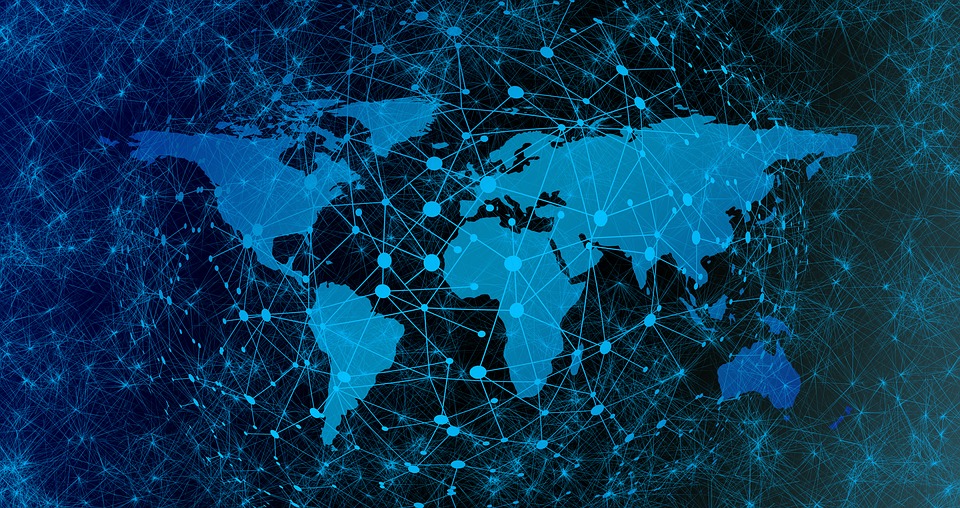It is not exaggerated to say that one of the main factors that allowed us to overcome the pandemic was digital technology. Our economies and societies turned digital in days. For the telecommunications industry, the pandemic meant an exponential increase on the demand side all along with the confinement. Connectivity grew by double digits overnight and the telecom networks managed to keep life moving forward. The growth in demand for digital services was not a mirage. As the lockdowns eased, and economies restarted, demand for connectivity lasted.
Common standards to avoid the risk of digital fragmentation
During this exceptional situation, many things have changed, also at the geopolitical level. For instance, Europe saw the chance to redefine its position in the multilateral arena and revitalize the transatlantic technology trade relationship. The new administration that came to office in the United States in 2020 surely contributed to building this vision and the conviction that regulatory coordination is paramount.
In recent years, the US reduced its transatlantic tech policy in order to put pressure on Europe to follow US initiatives. On the other side, Europe has undertaken numerous regulatory initiatives in areas ranging from digital taxes to digital market regulation. The “Brussels effect” – Europe’s idea of sharing its values and spreading its influence through the European regulation and free trade agreements is becoming a key foreign in what is called European digital sovereignty.
But while well-designed regulation can help unlock the benefits of technology, an explosion in national policies is creating trade tensions over technology leadership. The proliferation of excessive national standards and regulations not only results in duplicative, conflicting, and cumbersome regulations but also creates an additional burden on business, jeopardizing the functioning of global value chains and significantly impacting international trade. The development and adoption of common standards can be a vital instrument to foster interoperability and to open strategic value chains in favor of a diverse and innovative ecosystem.
The Trade and Technology Council
In this line, the Trade and Technology Council is the necessary forum to discuss these common rules. In its inaugural meeting, the European Union was represented by two of its heavyweight commissioners: Margrethe Vestager, who oversees the European digital policy and competition law, and Valdis Dombrovskis, in charge of economic and trade matters. For the United States, Commerce Secretary Gina Raimondo and Trade Representative Katherine Tai, together with Secretary of State Antony Blinken.
The first approach was clear. Although technology is, in essence, an industrial policy issue, its importance transcends every economic dimension. Indeed, technology has become a powerful geopolitical factor.
The global scarcity of semiconductors, the screening of foreign direct investments, the need for common standards to establish artificial intelligence rules, and the risk of human rights violations through technology misuse were some of the hot topics on the table during the council’s first meeting. The TTC was initially conceived to reduce political divergence, harmonize regulatory frameworks and promote cooperation on technology challenges. The limit is the respect of the regulatory autonomy of both parties, paying specific attention to the particularities of their respective legal systems and jurisdictions. Furthermore, cooperation within the TTC is intended to permeate multilateral organizations, including the WTO, and coordinate wider efforts to promote democratic and sustainable models of digital governance.
Organically, the TTC is structured into 10 thematic working groups: technology standards, climate and green tech, the resilience of supply chains, data governance, ICT security and competition, technology misuse and human rights, export controls, investment screening, SMEs digitalization, and global trade challenges. European authorities have recognized that the TTC is not meant to produce a trade deal or any sort of joint legally binding regulation. Instead, the working groups will be centered on expanding existing ties, facilitating cooperation, and promoting mutual research, investment, and innovation.
The TTC doesn’t mean the US will assume a European legal framework but can lay the ground to establish minimum standards of trustworthiness and safety that emerging technologies must respect on both sides of the Atlantic. At the same time, both parties believe their collective economic and political influence will help convince other countries to recognize and incorporate human-centered standards and common values into their national regulation.
Brussels considers the TTC as “too big to fail”. Without any doubt, it’s a sweet momentum for the transatlantic relation to taking significant steps on international cooperation and the good functioning of the multilateral system. For the digital economy, it’s definitely an opportunity to collaborate and boost innovation in emerging technologies around common standards and shared values and put aside violent passions. The first step has been taken. The foundation is being laid. All the participants know they will face challenging difficulties ahead and quick results will be required not to fall into despair. But there is a strong conviction that the outcome will benefit both parties and expand far beyond. The effort is worthwhile.











